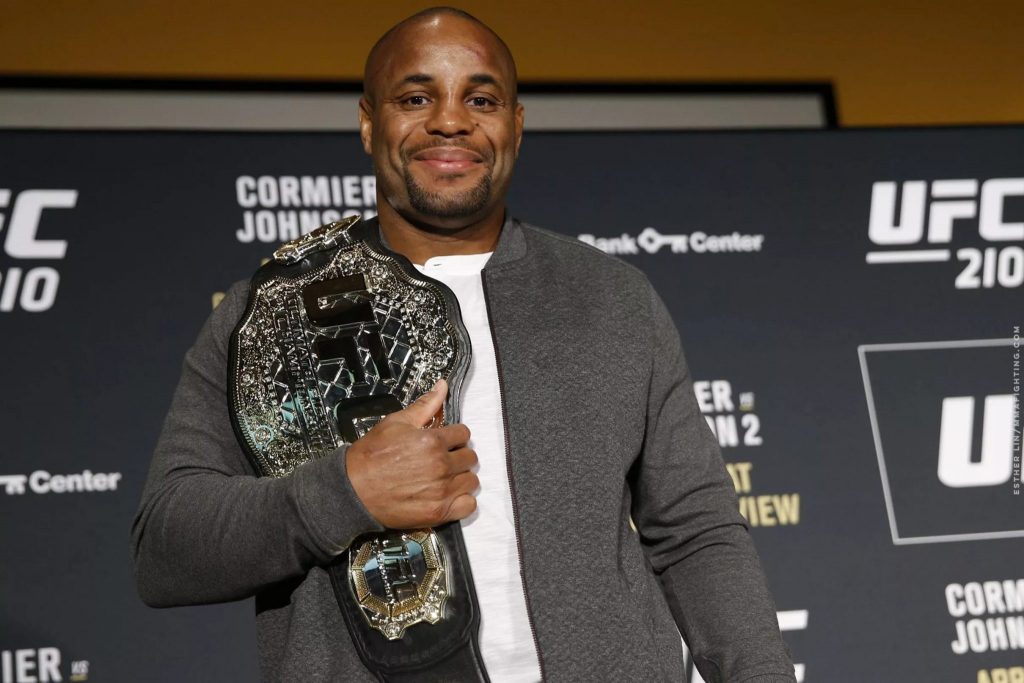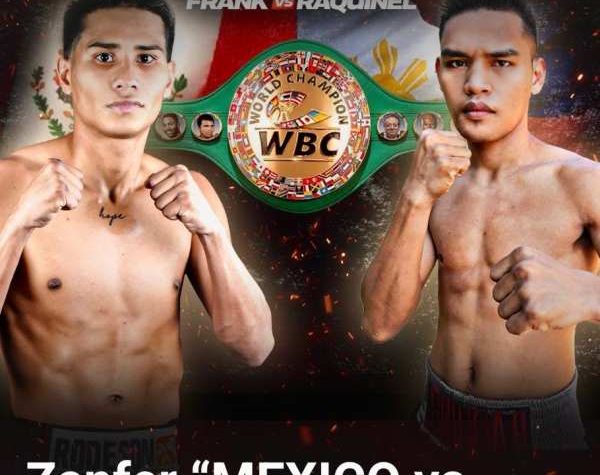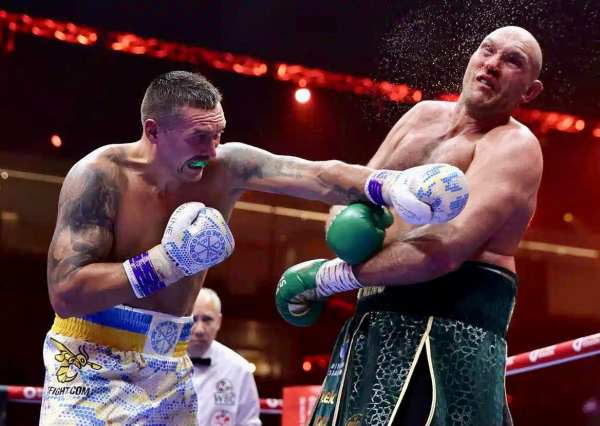
One of my favorite quotes when the UFC was on its rise was from Dana White, saying how he and Lorenzo Fertitta studied boxing to make sure they don’t repeat their mistakes.
Yet, in many ways, the UFC has become far more like boxing in recent years, particularly by removing the perceived value of championships. The short-term thinking of having to create a championship for almost every pay-per-view show has led to the public seeing through it and no longer caring about champions and title matches. In doing so, it has ripped at the foundation of the sport, creating a situation like we have now, where a few larger-than-life personalities draw huge and nothing else draws much at all.
There was a time in UFC history when a championship fight would guarantee 300,000 buys on pay-per-view, But those days are long gone. Three of the four women’s divisions and the men’s flyweight division are probably good these days for 100,000-buy shows, and a few other divisions are barely above that. No championship is a draw anymore — only certain fighters are, belt or not.
It hasn’t quite gotten there yet, but a lesson of just how little anyone cared about titles in boxing goes back to one of the biggest fights in modern times, the 2007 fight between Oscar De La Hoya and Floyd Mayweather Jr. With state-of-the-art weekly countdown shows, everyone knew it would be the biggest lighter-weight fight in pay-per-view history. But it wasn’t until days before the fight that people started realizing it was destined to the biggest pay-per-view event in history, regardless of the size of the athlete or the sport.
De La Hoya was defending his WBC light middleweight title against the favored Mayweather. In fan terms, De La Hoya was the clear-cut fan favorite, the babyface. And while he seemed to be losing the fight, it was not a blowout. Going to the cards after the 12th round, most figured it was going to Mayweather. But this was boxing, and we’ve seen far worse decisions on a regular basis than if this one went unfairly.
In the end, when it was announced “the winner, and new,” the place erupted. The title meant so little when it came to the buildup of the fight, that fans thought Mayweather was the champion and De La Hoya was winning the title via the decision.
The UFC hasn’t watered its championships down to the point that the live crowd sees a title match and has no idea who is actually the champion and challenger, but it has watered them down to the point where people don’t really care all that much.
Every time a title changes hands in the board room instead of in combat, its value decreases. And it only comes back if someone has a long, dominant run as champion to the point where everyone in their mind thinks of that person as “champ,” or if a champion is so charismatic that people not only focus on them, but on their key contenders as well, invigorating an entire division.
And you can’t blame people for not caring, when the fighters don’t seem to. The belts almost seem trivial to the money players.
Conor McGregor walked away from two belts. Georges St-Pierre walked away from one — well, actually two, but the first went back many years. Both Diaz brothers at times could have walked into title shots they never earned, because of their name value, and didn’t even care enough to take advantage of it. Brock Lesnar, who hasn’t officially won a fight since 2010, looks to be walking into a title match in 2019 because he’s Brock Lesnar. Daniel Cormier was stripped of his light heavyweight title without losing it. Tony Ferguson and Colby Covington won interim titles, which were then taken away.
Demetrious Johnson was the only flyweight champion in UFC history, lost his title by the closest of margins after a record-setting six-year reign, and is still in his prime, but he’s also walking away rather than trying to win back the title he is synonymous with.
The women’s flyweight division, created one year ago, had its first champion, Nicco Montano, stripped. She was hospitalized before her first title defense, likely from weight-cutting issues. Valentina Shevchenko was then set to face Joanna Jedrzejczyk for the vacant title, but after the fight was agreed to and announced, the matchup was scrapped. Instead, Shevchenko was booked to face Sijara Eubanks, whose main claim to fame seems to be that Joe Rogan said he didn’t even know who she was. Shevchenko vs. Eubanks was created because the UFC felt it needed a title fight at UFC 230 in Madison Square Garden, and that would make sense, if anyone cared about that championship — but they don’t. And then, a week later, the fight changed once again, back to Shevchenko vs. Jedrzejczyk on its original UFC 231 card in Toronto.
The UFC championship is supposed to signify the best in the world at that given point in time. It’s supposed to be the ultimate goal for the athlete, and the focal point of the sport for the fans. Yet, in looking at the last few years, how could it be when the champions are regularly walking away, and even if they don’t, the UFC takes belts away for reasons of it being inconveniences to the promotion to have shows where the champions aren’t ready for various reasons, and they want a title fight.
It is this mentality that is bringing us to the saddest example of all.
The UFC 230 main event of Cormier vs. Derrick Lewis for the heavyweight title, for name value, is better than a lot of title bouts in the past year. Cormier is an all-time great. While Lewis has never shown world championship level skills, he has won nine of his last 10 fights, including wins over Alexander Volkov, Francis Ngannou, Travis Browne, and Roy Nelson. He has great one-punch power, which is what fans of the heavyweight division are drawn to, and he has a colorful personality and is funny on interviews, self-deprecating and easily likeable.
While in no way is Lewis more deserving of a title shot than Stipe Miocic, he’s in a thin division and he’s far more deserving than Lesnar.
Just not on Nov. 3.
In needing a title fight for Madison Square Garden, the UFC booked two fighters on short notice to masquerade in what a title fight is supposed to be, which is a champion and a top contender who have trained to be at their best and peak on this given night.
Cormier, due to a hand break, had just one week before the fight was announced said that damage to his hand and wrist was healing slowly and wouldn’t allow him to fight until well into January. Instead, because the UFC made it financially worth his while, and perhaps because Lewis himself isn’t close to 100 percent, Cormier agreed to the fight.
For Lewis, it’s worse. Lewis just fought on Oct. 6, and while he did win via knockout with 11 seconds left in the fight, he took a beating for two rounds and much of the third. He sustained 78 shots to the head. He was exhausted quickly, and admitted he was not in shape for a title fight. He was nearly finished by repeated punches at another point.
He took enough of a beating that the Nevada commission ruled that he couldn’t have any contact until Oct. 28, and he was medically suspended until Nov. 6.
The latter date was an issue since the Madison Square Garden show was three days earlier. Of course, that was only a minor inconvenience, as suddenly his medical suspension was cut back and there was no problem fighting.
We’ve fairly recently had the version of this story already to learn from.
Michael Bisping, after losing his middleweight title to St-Pierre one year ago in Madison Square Garden, came back three weeks later as a fill-in for a fight with Kelvin Gastelum. Like Lewis, Bisping took a beating and was knocked silly with a punch. But because St-Pierre then choked him out, he didn’t lose via strikes and thus didn’t have a lengthy medical suspension. The reality is he was all but knocked out by that punch, and he was damaged like a TKO finish, but because St-Pierre instead went for the choke, it wasn’t a TKO.
Bisping was clearly not ready three weeks later, and was subsequently knocked out in the first round by Gastelum. And Bisping, over the course of his St-Pierre fight, didn’t take anywhere near the damage Lewis took from Volkov.
So, we have a champion who is fighting nearly three months before he thought his hand would be healed up against a challenger who just took a beating, wasn’t in shape for three rounds, then was told by a commission that he shouldn’t even do any contact training during the same period he needs to use to get sharp and in shape for a five-round fight.
Lewis does have a chance to win. He hits hard. But he shouldn’t be fighting anyone on that date, let alone in a championship fight. MMA is dangerous enough on its own and commissions should be there to protect fighters against their own bad judgment and from taking health risks that clearly are more than what should be an allowable degree.
For years, the UFC has said that the safety of the fighter is of the utmost importance. Yet, as this instance shows, those are empty words.
Lewis could win. He could take little damage. And he could get hurt. Normally, if someone gets hurt, that’s the risks they take to be a fighter. But in this case, it will be more the negligence of the UFC and the two athletic commissions who all looked the other way, because there was a show that needed a title match. Those same entities also allowed a fan base to be told they were getting a title match, but with both a champion and a challenger who on that day, had no business being in a title match.





More News
Quiñonero fights Verdadero in Resbak 2
Resbak 2 at Malungon, Sarangani Province on July 12
Garde stops Baliente in 1st round in “Resbak”